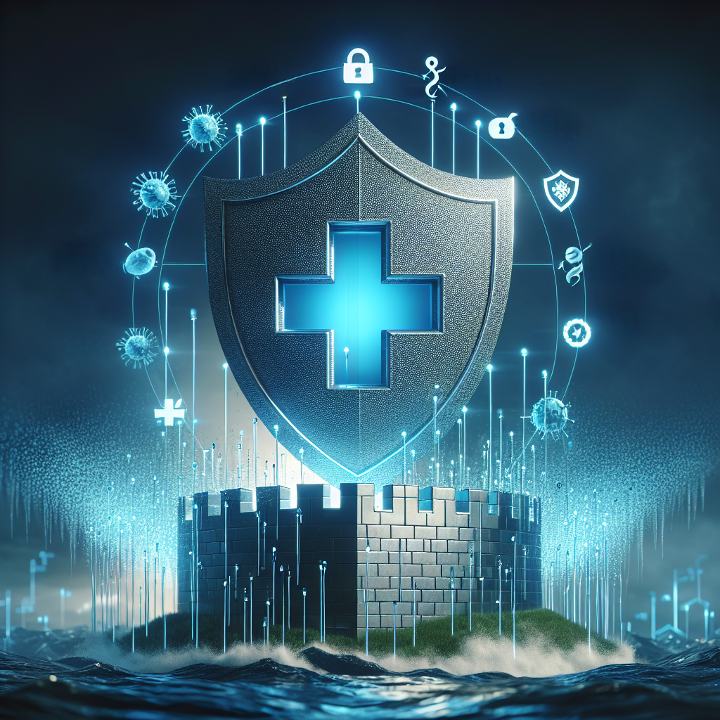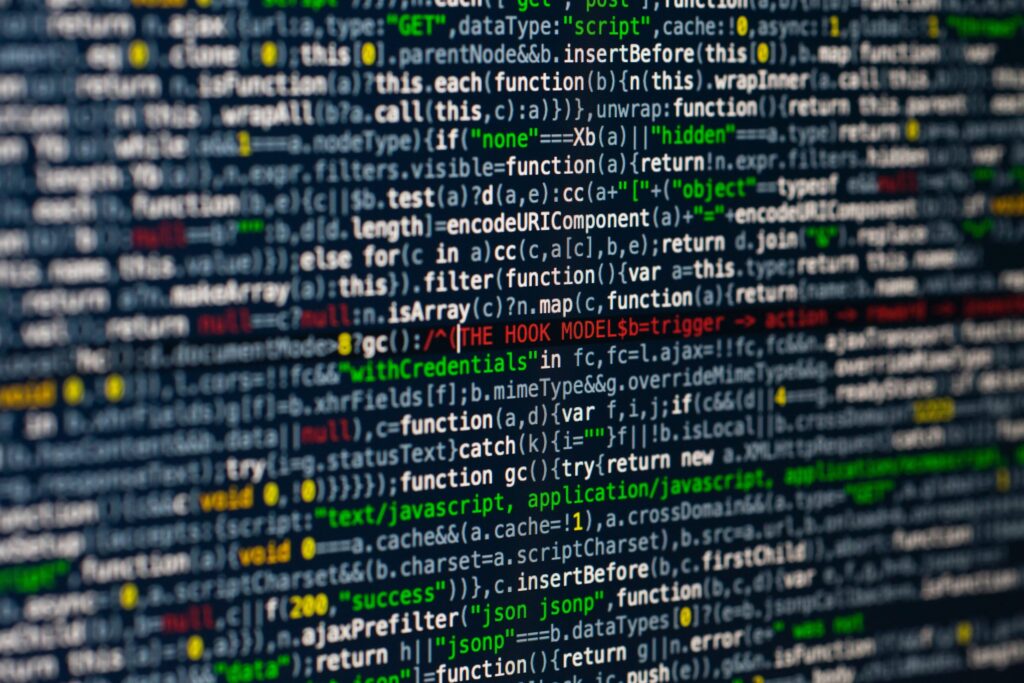ClearDATA’s Top Healthcare Cybersecurity Tips
Healthcare cybersecurity is more important than ever because sensitive data and patient safety are at stake.
- From 2009 to 2023, almost 500 million healthcare records have been exposed.
- The average cost of a healthcare organization data breach is $9.8 million.
- On average, it takes the healthcare industry 103 days to contain a data breach.
While these are large statistics, it’s the small, everyday actions that can make a significant difference in securing cloud patient data.
To safeguard your healthcare organization’s sensitive information, follow these tried-and-true cybersecurity tips for ultimate healthcare data protection.
Top 4 Cybersecurity Best Practices
Create Strong Passwords
The first of our cybersecurity tips: strong passwords.
Passwords are your first line of defense against cyber threats. Weak passwords make it easier for attackers to gain unauthorized access to sensitive accounts, leading to data breaches, identity theft, or financial loss. Strong passwords significantly reduce this risk by making it harder for hackers to crack them, even with advanced tools.
Here are our cybersecurity tips for creating the strongest passwords possible:
- Use Long, Complex Combinations: Create passwords at least 12 characters long and include a mix of uppercase and lowercase letters, numbers, and special characters.
- Avoid Predictable Information: Don’t use easily guessable details like names, birthdays, or common words. Opt for random phrases or use a password generator for extra security.
- Utilize a Password Manager: Tools like 1Password or LastPass help you generate, store, and autofill strong, unique passwords for each account, eliminating the need to remember them all manually.
Use Two-Factor and Multi-Factor Authentication (MFA)
MFA adds an additional layer of protection beyond passwords by requiring a second verification step, such as a code sent to your phone or an authentication app. This makes it exponentially harder for attackers to gain access, even if they’ve obtained your password. It’s like having two locks on your door, and you can make it more difficult to find that second key.
Let’s look at some of our essential MFA cybersecurity tips:
- Enable MFA on All Accounts: Activate MFA for all sensitive accounts, including email, banking, and social media, to secure your most critical data.
- Use an Authentication App: Apps like Google Authenticator or Authy are more secure than SMS-based authentication, which can be vulnerable to SIM-swapping attacks.
- Regularly Review MFA Settings: Periodically check which devices and applications can access your accounts, and remove outdated or unauthorized entries.
Be Aware of Social Engineering
Social engineering preys on human psychology to trick individuals into revealing sensitive information or performing security compromising actions. The statistics surrounding social engineering are staggering: 98% of cyber-attacks employ some form of social engineering and 90% of malicious data breaches involve social engineering techniques.
See our cybersecurity tips for avoiding social engineering tactics:
- Verify Before Acting: Always double-check the source of unexpected communications, especially those asking for personal or financial information.
- Be Skeptical of Urgency: Cybercriminals often create a false sense of urgency. Take your time to assess the legitimacy of any request before responding.
- Educate Yourself and Others: Learn common tactics like phishing and spear-phishing, and share this knowledge with team members to strengthen awareness.
Update Software Regularly
Software updates patch vulnerabilities that hackers exploit to gain access to systems. Outdated software can expose you to malware, ransomware, and costly healthcare cyber threats, making regular updates critical to maintaining your security.
Best cybersecurity tips for keeping your software updated:
- Enable Automatic Updates: Most devices and applications allow automatic updates that implement the latest security patches without manual intervention.
- Prioritize Critical Systems: Focus on updating operating systems, antivirus software, and applications that handle sensitive data, like browsers or email clients.
- Uninstall Unused Software: Remove outdated or unused programs from your devices to reduce the attack surface and eliminate potential vulnerabilities.
What Is Personal Cybersecurity?
Personal cybersecurity refers to the practices and measures individuals take to protect their personal information, devices, and online accounts from unauthorized access, theft, or damage.
This includes safeguarding sensitive data like passwords, financial information, and private communications from cyber threats such as hacking, phishing, malware, and identity theft
Why Is Personal Cybersecurity Important?
Personal cybersecurity is essential because it protects your sensitive information—such as financial data, medical records, and private communications—from cybercriminals who seek to exploit vulnerabilities for personal gain. Without personal cybersecurity, you can be open to risks like identity theft, financial loss, and unauthorized access to your accounts or devices.
In healthcare, personal cybersecurity is even more critical as it helps safeguard sensitive health information and keeps interactions with healthcare providers private and secure.
What Are Some Common Signs of a Cyberattack?
Recognizing the signs of a cyberattack is crucial to mitigating damage quickly. Here are some common indicators:
- Unusual Account Activity: Unauthorized logins, password reset requests, or notifications about account access from unfamiliar devices or locations.
- Suspicious Pop-Ups or Redirects: Frequent pop-ups, unexpected browser redirects, or warnings about malware from unfamiliar sources may indicate a compromised system.
- Unexpected Slow Performance: Sudden, unexplained slowness on your device or internet connection could result from malicious software consuming resources.
- Unauthorized Transactions: Charges, withdrawals, or financial transactions you didn’t conduct are a clear red flag of a potential breach.
- Missing or Modified Data: Files or emails that are unexpectedly trashed, moved, or altered without your knowledge may signal unauthorized access.
- Frequent Crashes or Errors: Systems or applications crashing repeatedly, or strange error messages, may suggest malware or a targeted attack.
- Unfamiliar Software or Processes: New programs or running processes you didn’t install could indicate that malicious software has been deployed on your device.
If you notice any of these signs, it’s important to act quickly by changing your passwords, scanning for malware, and implementing our cybersecurity tips. Early detection can significantly limit the damage caused by a cyberattack.
7 Best Practices to Protect Your Data
We’ve already gone over the best cybersecurity tips for your organization, but here is how you can protect your data beyond those initial strategies:
- Monitor Account Activity: Regularly review email, banking, and social media account activity. Many platforms offer account logs that show recent logins and locations. Look for suspicious activity or unauthorized access and take immediate action, like changing passwords, if anything looks unusual.
- Back-Up Your Data Frequently: Regularly back up critical data to a secure, offline location or a trusted cloud service. With backups, you won’t lose access to essential information even if your device is compromised.
- Secure Your Wi-Fi Network: Your home or workplace Wi-Fi should be encrypted and protected with a strong password. Avoid using default network names or passwords provided by your internet service provider. Consider enabling a guest network for visitors to prevent them from accessing sensitive devices on your primary network.
- Avoid Public Wi-Fi for Sensitive Transactions: Public Wi-Fi networks are often unsecured, making them prime targets for cybercriminals. Avoid accessing banking apps, entering passwords, or sharing sensitive information over public Wi-Fi. If you must use public networks, connect through a virtual private network (VPN) for added security.
- Limit Personal Information Shared Online: Be mindful of the information you share on social media and other platforms. Cybercriminals often gather personal details to craft targeted phishing attacks or guess passwords. Avoid oversharing details like your address, phone number, or employment information.
- Educate Yourself and Your Team: Ongoing education is a powerful defense against cyber threats. Stay informed about the latest healthcare cybersecurity risks and trends, and share with your team. Regularly updating awareness equips everyone to recognize and respond to potential threats.
- Use Security Tools and Features: Leverage antivirus software, firewalls, and other healthcare cybersecurity tools to protect your devices from malware and unauthorized access. Many of these tools also provide real-time monitoring and alerts, adding an extra layer of protection.
Need More Cybersecurity Tips?
By implementing these cybersecurity tips, you’re taking proactive steps toward protecting your digital identity and reducing cyber risks.
For healthcare organizations, where sensitive patient data is at stake, maintaining robust cybersecurity measures is even more critical. ClearDATA’s industry-leading healthcare cybersecurity services and capabilities are designed for cloud security and compliance, offering advanced tools, continuous monitoring, and tailored solutions to protect against evolving threats.
Take the next step in securing your data. Speak with a ClearDATA healthcare cybersecurity expert today and discover how we can help you strengthen your cyber defenses.
FAQ
What Is Ransomware and How Can I Protect Myself From It?
Ransomware is a type of malicious software (malware) that encrypts a victim’s files or locks them out of their system, rendering the data inaccessible until a ransom is paid to the attacker.
Cybercriminals typically deliver ransomware through phishing emails, malicious links, or infected software downloads. Once the ransomware is activated, it encrypts files or takes control of systems, often accompanied by a ransom note demanding payment, usually in cryptocurrency. Even after paying the ransom, there’s no guarantee the attackers will restore access to the data.
Here are our cybersecurity tips to protect you from ransomware attacks:
- Back up your data regularly
- Avoid clicking on suspicious links
- Keep software and systems updated
- Use strong, unique passwords
- Install security tools
- Educate yourself about phishing tactics
- Limit user privileges
- Enable file extensions and disable macros



